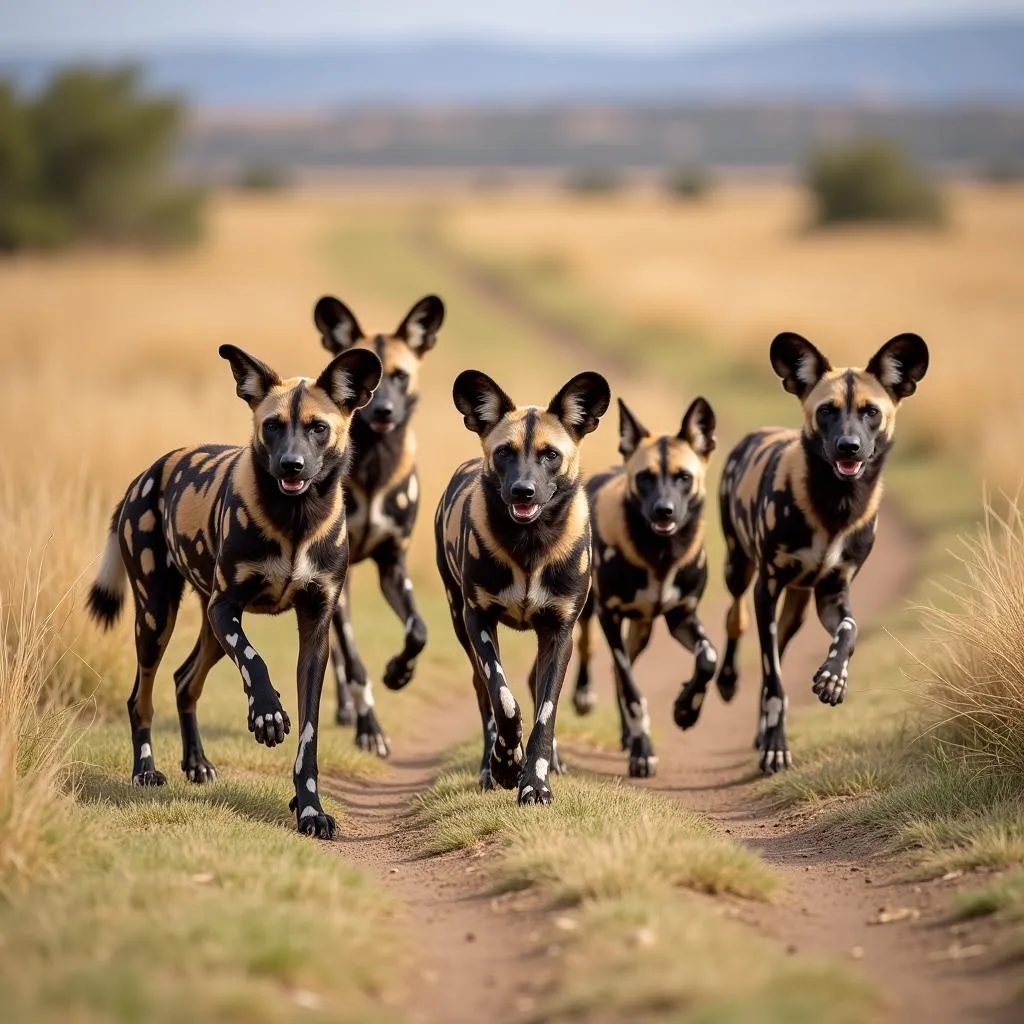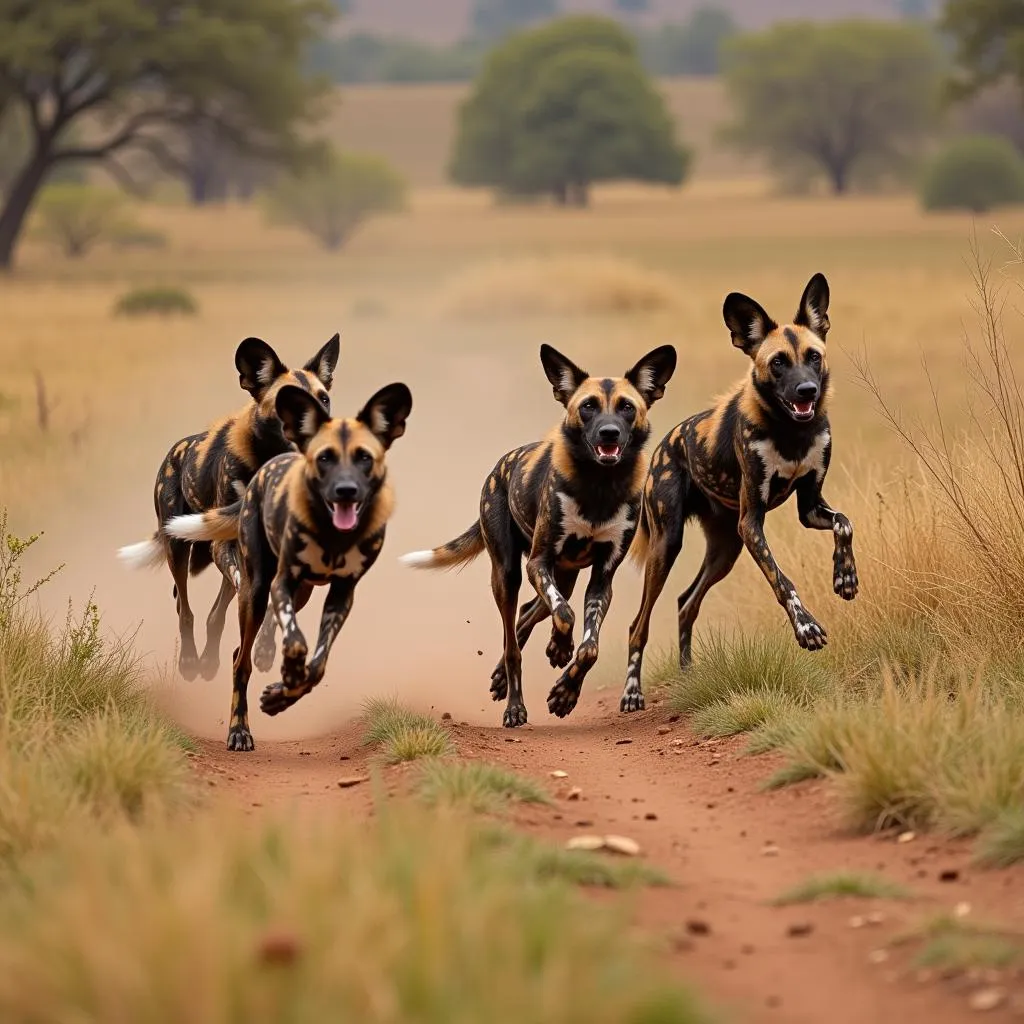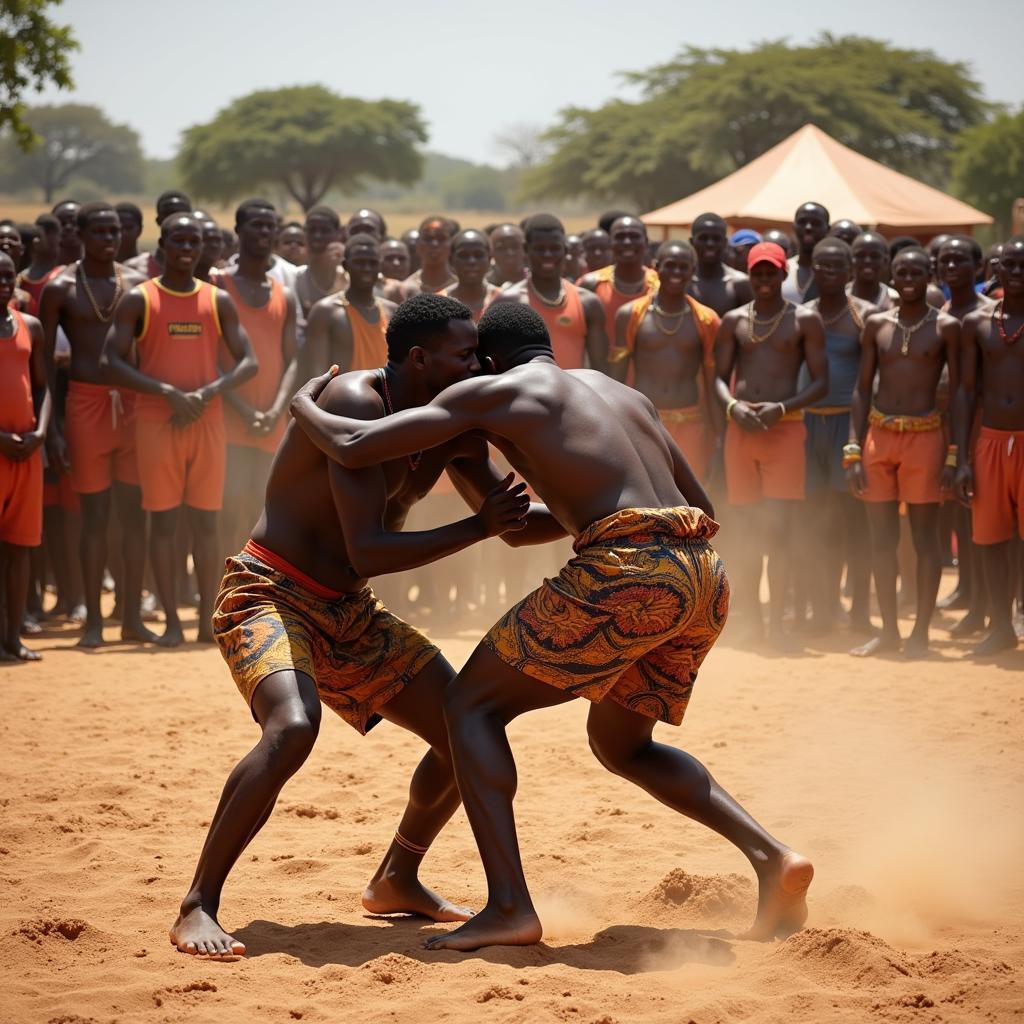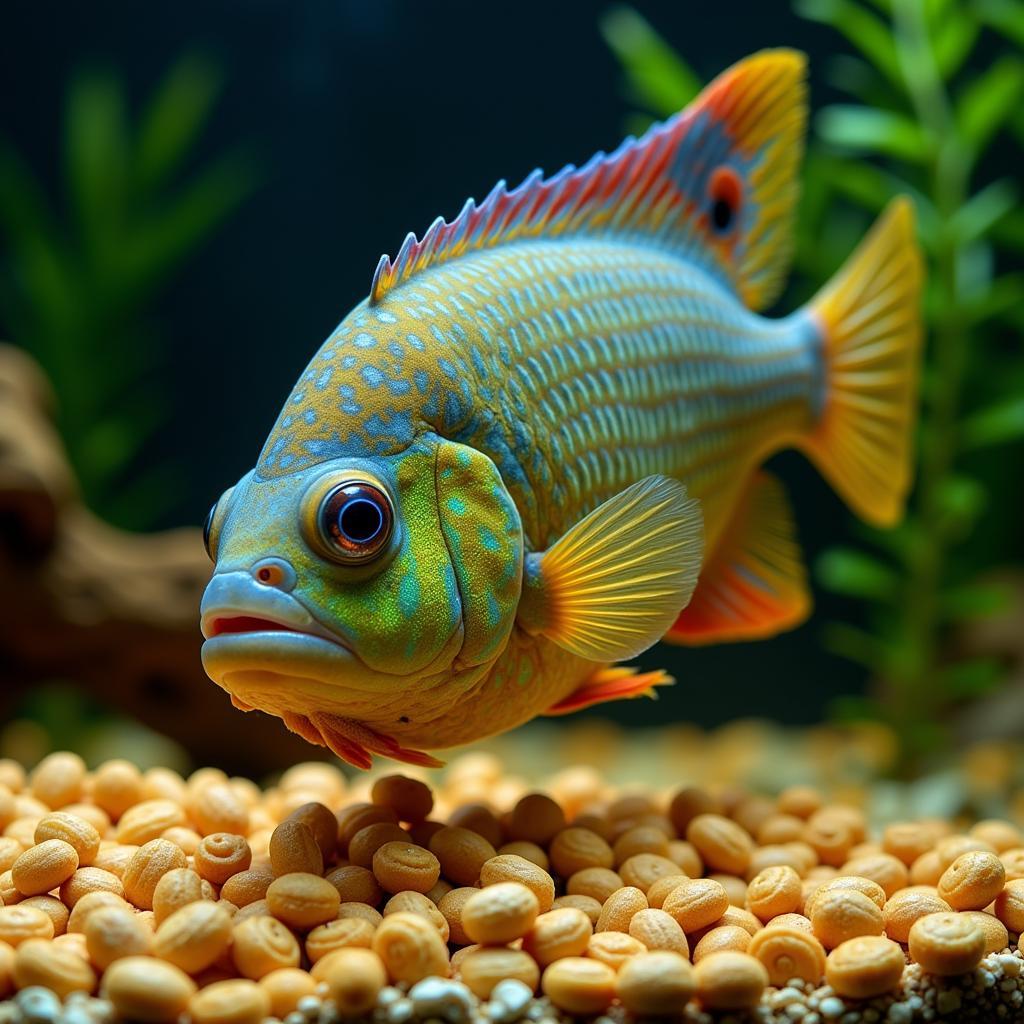African Hunting Dog Domesticated: Myth or Reality?
The idea of an “African Hunting Dog Domesticated” sparks curiosity and perhaps even skepticism. Known for their wild nature and pack dynamics, African wild dogs, or painted wolves as they’re also called, aren’t typically associated with domestication. This article delves into the reality behind this intriguing concept, exploring their natural history, the challenges and ethics of domestication, and whether these captivating creatures could ever truly become our companions.
 A pack of African wild dogs in their natural habitat
A pack of African wild dogs in their natural habitat
Can African Hunting Dogs Be Domesticated?
To address this question, we need to understand what “domestication” entails. It’s not simply taming a wild animal; it’s a multi-generational process of selective breeding, altering an animal’s genetics and behavior to make them more suitable for living with humans. While dogs and cats have undergone this transformation over millennia, African wild dogs haven’t.
Their very nature makes them unsuitable for domestication. These are apex predators with strong hunting instincts, requiring vast territories and complex social structures within their packs. Confining them to a domestic setting would not only be detrimental to their well-being but could also be dangerous.
The Allure and Challenges of the African Wild Dog
Their striking appearance, with their patchwork coats and expressive ears, undoubtedly contributes to the fascination surrounding them. There’s a romantic notion of taming such a wild creature, of bridging the gap between our world and theirs.
However, the reality is far more complicated. Their specialized diet, reliance on their pack, and inherent wild instincts present insurmountable challenges to domestication. Attempts to keep them in captivity have often resulted in stress-related health issues and behavioral problems.
 African wild dogs using their speed and teamwork to hunt prey
African wild dogs using their speed and teamwork to hunt prey
The Ethics of Wild Animal Domestication
Beyond the practical challenges, the ethical implications of attempting to domesticate African wild dogs are significant. These animals belong in the wild, where they play a crucial role in maintaining ecosystem balance. Removing them from their natural environment and attempting to mold them to our needs raises serious ethical concerns about animal welfare and conservation.
Appreciating African Hunting Dogs From a Distance
While the prospect of an “african hunting dog domesticated” remains firmly in the realm of fiction, it doesn’t diminish our fascination with these incredible animals. Instead of seeking to confine them, we should focus our efforts on conservation, ensuring that future generations can continue to marvel at their wild beauty and ecological importance.
Supporting organizations dedicated to [african hunting dog for sale] and habitat preservation is a far more effective and ethical way to appreciate these creatures than attempting to make them something they’re not.
FAQs about African Hunting Dogs
1. Are African wild dogs related to domesticated dogs?
Yes, they are distantly related, but they diverged on the evolutionary tree millions of years ago.
2. What is the biggest threat to African wild dogs?
Habitat loss, disease, and human-wildlife conflict are their biggest threats.
3. How many African wild dogs are left in the wild?
Estimates suggest there are fewer than 7,000 individuals remaining, making them an endangered species.
4. Do African wild dogs make good pets?
No, due to their wild instincts and complex needs, they are not suitable as pets.
5. How can I help protect African wild dogs?
You can support conservation organizations, raise awareness, and advocate for responsible tourism practices.
Explore More
For further reading on African wildlife, you can explore articles about [african dog breeds list] and even learn about the fascinating [african animal springbok]. You can also find more information on the [african hound].
Contact Us
For any inquiries or assistance, please contact us:
Phone Number: +255768904061
Email: kaka.mag@gmail.com
Address: Mbarali DC Mawindi, Kangaga, Tanzania.
Our dedicated customer support team is available 24/7.



